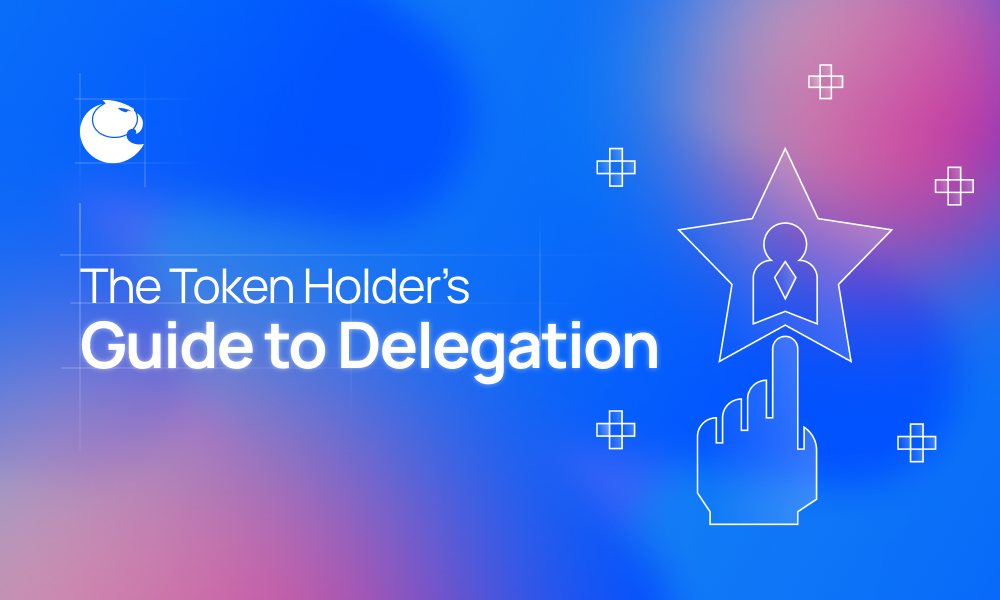For many reasons—from saving gas costs by bundling votes to token holders not having time to maintain the context to thoughtfully vote on proposals—delegation has emerged as the primary mechanism for DAOs to boost governance participation and make decisions more effectively.
DAOs like Uniswap, Arbitrum, Optimism, and ENS are all delegate voting DAOs, meaning token holders can delegate their voting power to an individual or group to vote for them. It’s essentially representative governance with optionality to choose your representative or exercise direct democracy if you want to cast votes yourself.
Being a token holder in a delegate voting DAO is a powerful role. By delegating tokens, you’re assigning voting power, and therefore decision-making power, to another address. So how do you choose the delegate that will best represent your interests?
We interviewed delegates across the ecosystem to hear the standards they would set when delegating their tokens. Let’s cover the broad topics they recommended token holders look into when determining who they should delegate to.
Are their incentives aligned with yours?
Incentive alignment was the topic that came up most in our interviews with delegates.



